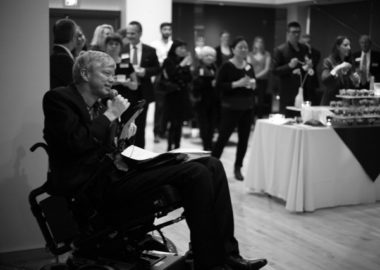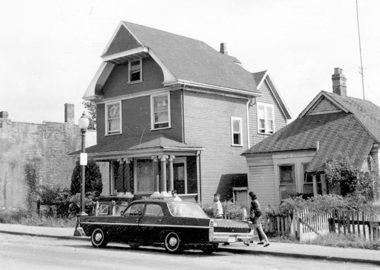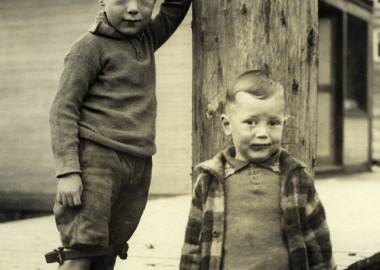
Everyone loves a good mystery.
For the Christmas season, the British Library opened a pop-up shop in their lobby themed around the golden age of murder mysteries. Festively decorated, the shop sells books and other gifts suitable for the holiday season. However, this was no ordinary shop.
Visitors were being invited into a story-driven shopping experience. Each shopper was invited to solve a mystery straight out of Agatha Christie. Equipped with an introduction priming them to the situation, shoppers were invited to search for clues amongst the displays. This was no basic brochure copy either; the British Library had enlisted Martin Edwards, award-winning crime writer, to come up with the plot and text.
What does this accomplish? Other than making it super, super cool, it drives deep engagement with the retail experience. The British Library is not a major shopping destination. The murder mystery concept drives foot traffic, drives social and drives sales. It provides a brand story experience that aligns the library with geek chic high-end shopping.
So often, when we talk about brand storytelling, we mean a blog post, or a book, or a video. However, what makes brand storytelling so powerful is not the words on the page; it is the experience of reading them. A great story invites your audience into the moment; their real-time emotional reactions make it memorable. Brands can tell powerful stories through text or image; but they can also tell them through experiences.
The Grey and Golden Goose
French vodka maker Grey Goose has possibly the best-known experiential marketing story. Grey Goose sees their brand as akin to a high-quality champagne. To underline this distinction, they wanted educated consumers on their high-quality French ingredients. Enter Boulangerie Francois, a pop-up bakery selling fresh baguette made from the same wheat used to make Grey Goose. The boulangerie was followed by Grey Goose’s cocktail camionnette, a mobile cocktail bar that disguised itself as a bread delivery van. Finally, the brand partnered with luxury department store Harvey Nichols to host “Boulangerie Francois Terrasses”, a series of summertime outdoor gathering spaces that paired bespoke vodka cocktails with French patisserie (all made with the same wheat, naturally).
What did all these pop-up experiences provide? They provided story-driven education around the Grey Goose brand and they invited a positive brand story experience. People interacted with the Grey Goose brand in a fun way. Most importantly, Grey Goose reported a significant and lasting lift in sales.
So, how can your brand leverage experiences to tell your story? Here’s our top tips.
Make It Actually Fun
Nobody wants to spend time doing something boring. Sounds obvious, but sometimes “what advances your brand” and “what is actually fun” doesn’t naturally overlap. Cocktails in the summer sun is fun. Solving a murder mystery is fun. Make the experience worth spending time and money.
Seek Out The Social
A lot of brands want to build followers on social platforms. That’s a great goal, but with the collapse of organic reach, it can be an expensive one. Make the most of your reach (and take advantage of the power of dark social) by creating an inviting environment to snap, tweet and share about your brand on your customer’s social media. Bonus: it will feel fun and organic, not weirdly corporate.
Don’t Neglect PR
Public relations can still be a powerful tool in experiential marketing. Use your experience to invite influencers to your brand – they can have big impact and leverage their audiences to your benefit. Positive press mentions build brand credibility and drive SEO. Furthermore, it maximizes your investment. Your brand story experience might only be available in a few targeted cities, but the press can make sure everyone knows about it.
Make Good Friends
Partnerships can make or break brand storytelling experiences. We’ve already discussed Grey Goose’s partnership with luxury retailer Harvey Nichols and the British Library is trying something similar, partnering with the Guardian newspaper to host events for crime fiction aficionados. If you’re doing something truly cool and interesting, then the right partner will be interested.
It’s trendy to engage in experiential marketing, but don’t dismiss it as a fad. A great experiential marketing campaign can develop deep emotional engagement with your brand whilst putting your customer right in the heart of your brand story – a bet that can pay off big.




